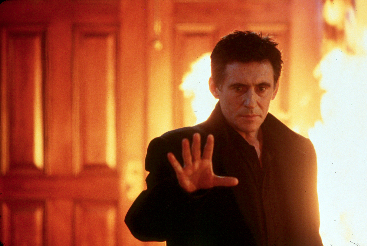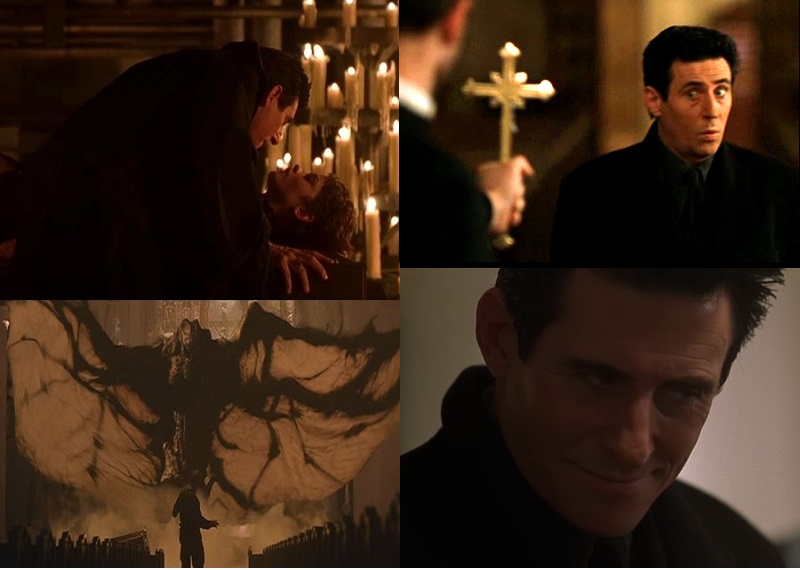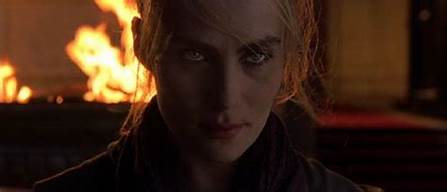Good thing our knowledge of psychiatry improved. Back in the day they would have basically tried to exorcise schizophrenics, people suffering from psychosis, etc.
Edit to add- be careful clicking on CNN article, could pick up a weird spirit, or something.
Found this interesting.
https://www.cnn.com/2017/08/04/health/exorcism-doctor/index.html
Dr. Richard Gallagher is an Ivy League-educated, board-certified psychiatrist who teaches at Columbia University and New York Medical College. He was part of the team that tried to help the woman.
Fighting Satan's minions wasn't part of Gallagher's career plan while he was studying medicine at Yale. He knew about biblical accounts of demonic possession but thought they were an ancient culture's attempt to grapple with mental disorders like epilepsy. He proudly calls himself a "man of science."
Yet today, Gallagher has become something else: the go-to guy for a sprawling network of exorcists in the United States. He says demonic possession is real. He's seen the evidence: victims suddenly speaking perfect Latin; sacred objects flying off shelves; people displaying "hidden knowledge" or secrets about people that they could not have possibly have known.
"There was one woman who was like 90 pounds soaking wet. She threw a Lutheran deacon who was about 200 pounds across the room," he says. "That's not psychiatry. That's beyond psychiatry."
Gallagher calls himself a "consultant" on demonic possessions. For the past 25 years, he has helped clergy distinguish between mental illness and what he calls "the real thing." He estimates that he's seen more cases of possession than any other physician in the world.
"Whenever I need help, I call on him," says the Rev. Gary Thomas, one of the most famous exorcists in the United States. The movie "The Rite" was based on Thomas' work.
"He's so respected in the field," Thomas says. "He's not like most therapists, who are either atheists or agnostics."
Gallagher is a big man -- 6-foot-5 -- who once played semipro basketball in Europe. He has a gruff, no-nonsense demeanor. When he talks about possession, it sounds as if he's describing the growth of algae; his tone is dry, clinical, matter-of-fact.
Contemporary Catholicism doesn't see faith and science as contradictory. Its leaders insist that possession, miracles and angels exist. But global warming is real, so is evolution, and miracles must be documented with scientific rigor.
One of Gallagher's favorite sources of inspiration is Pope John Paul II's encyclical "Fides et Ratio" ("On Faith and Reason"). The Pope writes that "there can never be a true divergence between faith and reason, since the same God who reveals the mysteries and bestows the gift of faith has also placed in the human spirit the light of reason."
The church's emphasis on faith and reason can even been seen in the birth of its exorcism ritual.
The Rite of Exorcism was first published in 1614 by Pope Paul V to quell a trend of laypeople and priests hastily performing exorcisms on people they presumed were possessed, such as victims of the bubonic plague, says the Rev. Mike Driscoll, author of "Demons, Deliverance, Discernment: Separating Fact from Fiction about the Spirit World."
"A line (in the rite) said that the exorcist should be careful to distinguish between demon possession and melancholy, which was a catchall for mental illness," Driscoll says. "The church knew back then that there were mental problems. It said the exorcist should not have anything to do with medicine. Leave that to the doctors."





